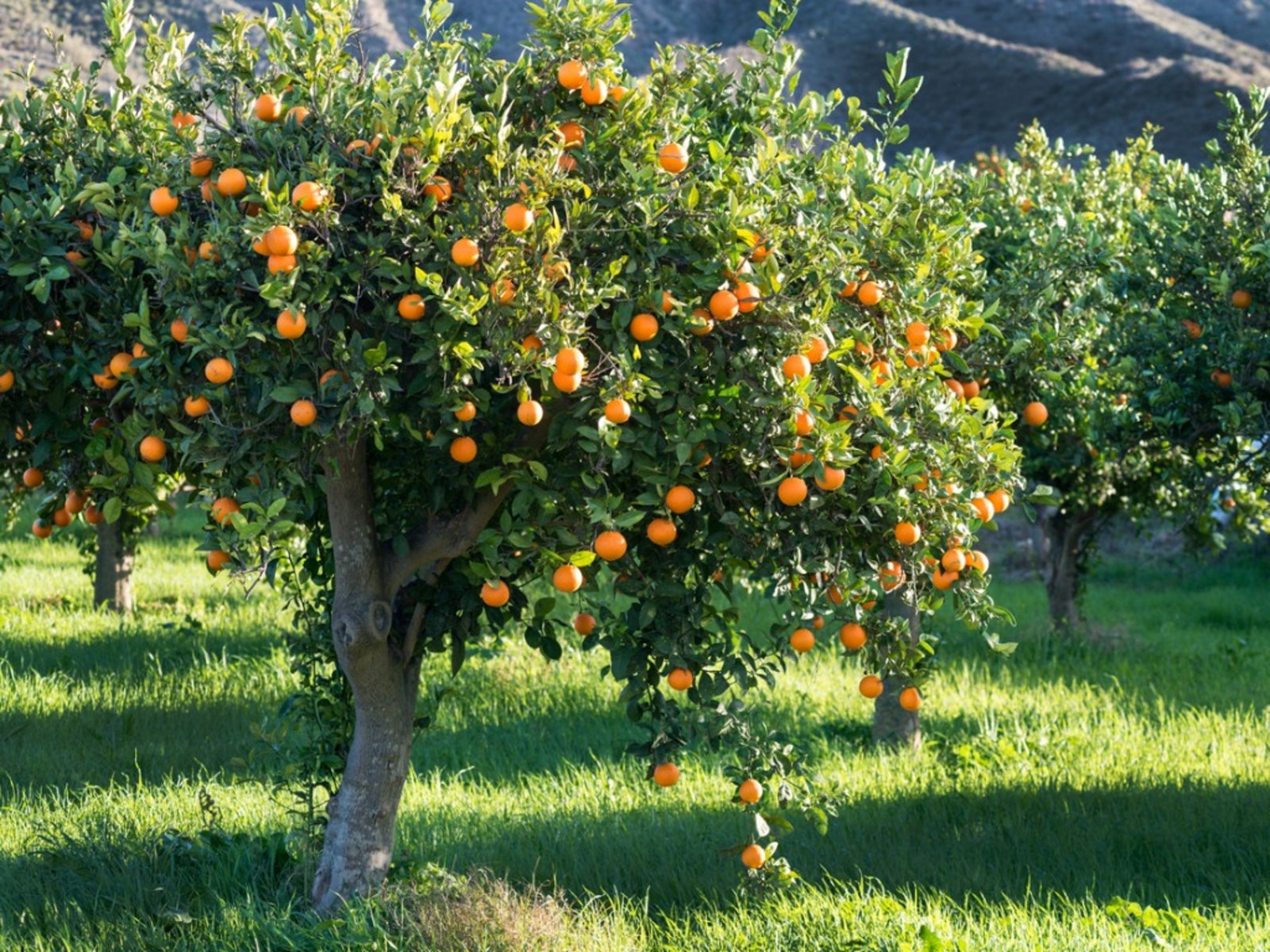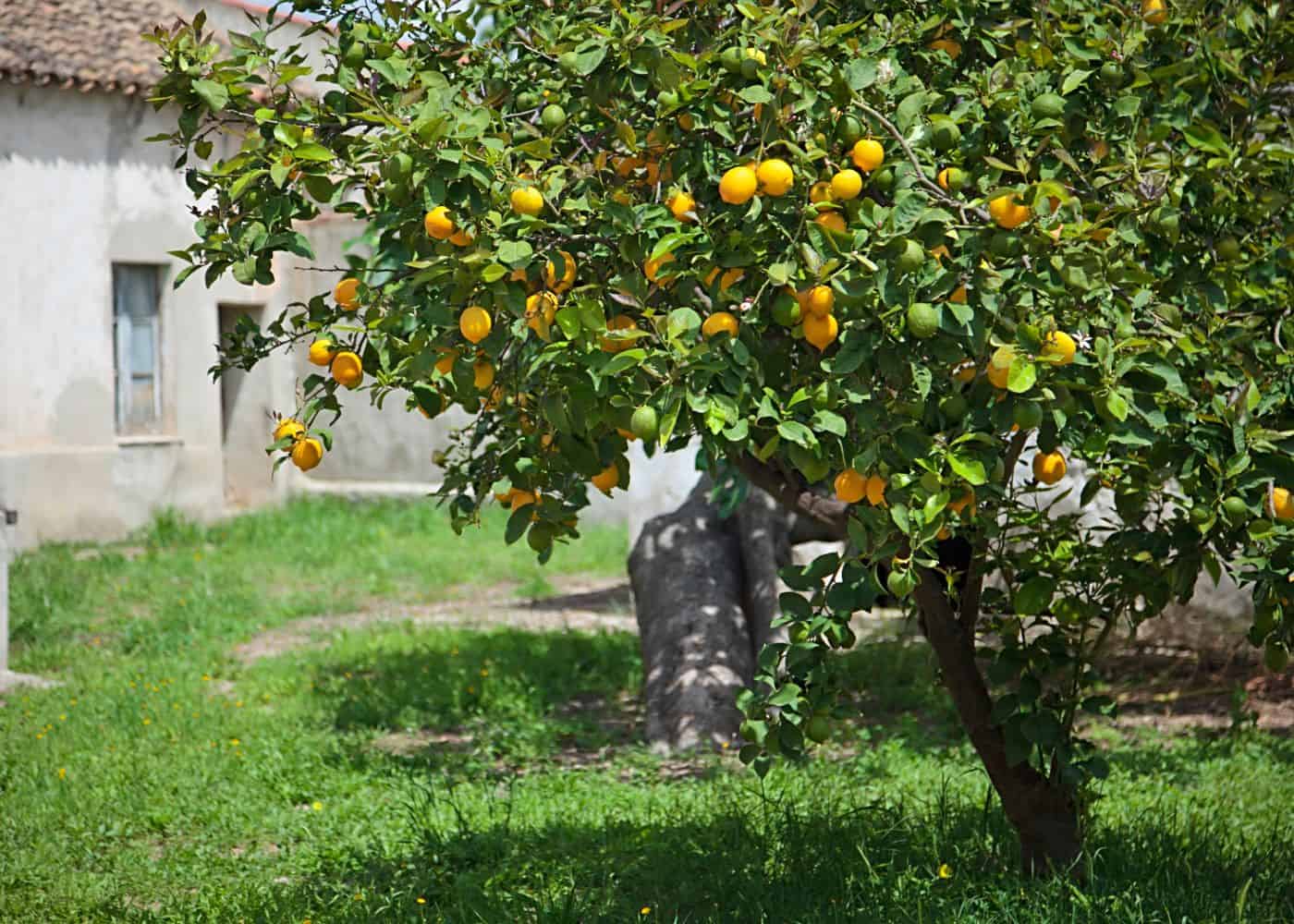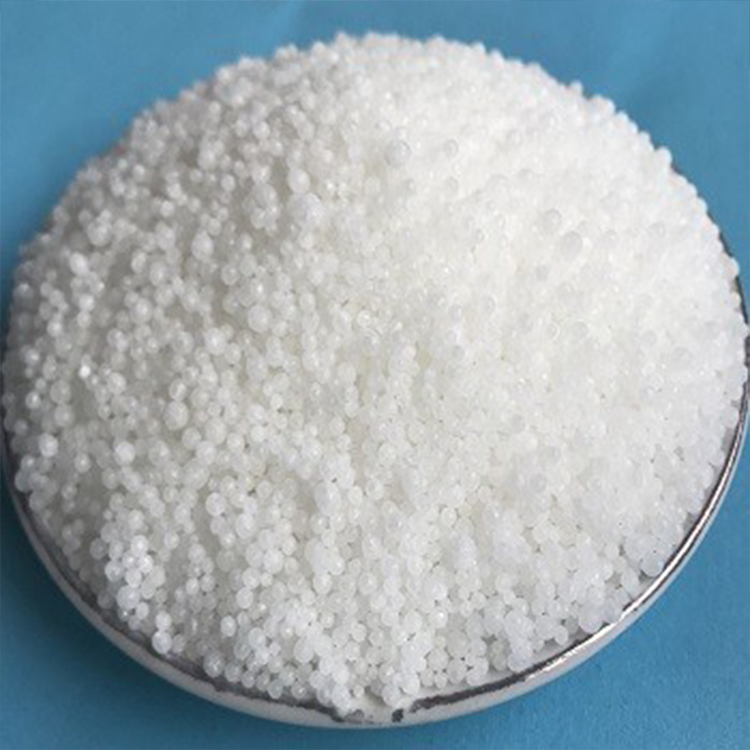Introduction to Organic Citrus Farming
The citrus farming has increasingly went through established stage to much more advanced sustainable organic citrus farming- the journey with more environment friendly practice with aim of preserve the natual habitat and keeps citrus farming environmentally friendly.
Lately, the agriculture industry has been developing a growing number of organic farming practices to support a broader range of food products unaffected by synthetic chemicals and also beneficial to the wider ecosystem. Citric fruit, especially mandarins, is among the common products that involve fertilizer as one of the main components to have a healthy and efficient growing process for optimal fruit quality. Driven by consumer demand for organic foods and the best quality citrus fruit, as well as the increasing potential of exportation for citrus fruits, selecting the best organic citrus fertilizers is a crucial decision for the thriving industry.
As Dr Hannah Elton, an organic agronomy specialist and one of the world’s leading experts on this topic, explains: ‘Your citrus trees’ growth and ultimate fruit quality will depend on your choice and application of organic fertilizer, as it is critical to their successful uptake of nutrients and consequent maintenance of healthy soil.’ She is saying that the fertilizer you use affects the life of your orchard. By extension, of course, it also affects the quality of the food you produce.
This attention to organic fertilizers links to the fact that these fertilizers offer a complimentary dilution of nutrients that avoids the otherwise harsh impacts of synthetic methods. In adopting more organic approaches, plantation owners also aren’t losing economic capability, since careful agricultural practice enables them to produce more nutrient- and flavour-rich fruits that align with both producer and consumer goals in modern health-conscious consumer markets.
What Makes a Fertilizer Organic?
And so it goes that knowing what a fertilizer is considered organic is the first part of identifying the best type of organic fertilizer for your citrus orchards. An organic fertilizer is one that can be extracted from natural sources organic fertilizers are not synthesised chemically like other fertilizers, they undergo very limited processing and are kept as close to their natural forms as possible. This is the difference between organic fertilizers and synthetic fertilizers. Synthetic fertilizers are designed to contain specific formulations or combinations of nutrients which make them effective for supporting plant growth.
Lucy Warner, a soil scientist at Yavapai College, describes them by how they’re made and what they do: ‘It’s any organic material that is not synthetically made. They increase the amount of nutrients, especially nitrogen, phosphorus and potassium that is applied to the soil, but they do other things as well. They increase soil structure, they increase microbial activity, and they hold more water.’ In citrus, she adds, this is all essential for practices that need to be sustainable for the long term.
The key components of organic fertilizers that are particularly beneficial for citrus plants include:
Nitrogen: Vital for leaf growth and the development of a vibrant green color.
Phosphorous: Essential for root development and improving flower and fruit quality.
Potassium: Increases the vigour of the plant, which heightens drought and disease resistance.
So, these nutrients come from natural sources: bone meal, a natural fertilizer made from oxen, and composted seaweed and manure, which have all been broken down by bacterial activity and so provide a slow-release source of nutrition. This slow release is important, because the citrus plant won’t take up as much nitrogen as it would from fast-release, synthetic fertilizer. I’ve also included a slow-release, iron supplement, as iron is leached out of citrus plants quite easily.
These farmers are beginning to realize that the best reasons to choose organic fertilizers are not the environmental benefits, but the visible increases in the health and vigour of the orchards – an essential remedy for sustaining productive orchards into the future.

Benefits of Using Organic Fertilizers in Citrus Orchards
When it comes to horticultural use of organic fertilizers, the benefits reach further than the enhancement of soil fertility and include an array of other crucial factors that influence the general well-being of citrus plants, the longevity and productivity of the orchard, and the wider ecosystem in which the entire operation is rooted.
Improved Soil Health and Structure Enhanced soil fertility is a great benefit of using organic fertilizer. The organic matter in organic fertilizer adds organic matter (OM) to the soil. As overseer of the Center for Economic and Social Development at the American University of Armenia, my work focuses on how families and communities can manage biological, physical and social ecosystems sustainably. As an organic agriculture specialist, more fertile soil enables plants to grow better root systems. It also increases the capacity of the soil to hold water. A healthy living soil is the foundation of any healthy orchard.’
Improved on-tree health and fruit yield in the long term: The slow-drip release mechanism of organic fertilizers mimics the natural nutrient uptake process for plants, so that the trees get a balanced diet over time. According to Benson: ‘Tree productivity remains optimum because no boom-and-bust cycle forms.’ Boom-and-bust is the characteristic cycle-of-life that many plants and trees with conventional inputs experience via the rapid rise and fall that is the unfortunate side-effect of the efficiency of synthetic fertilizer. ‘Trees get the nutrients that they need and use throughout their lifecycle,’ continues Benson, in contrast to the pattern created by synthetic fertilizers. ‘This is reflected in citrus productivity in terms of both quality and quantity’.
Environmental Impact and Safety: Since organic fertilizer doesn’t run into the nearby water body, as synthetic fertilizer is prone to, that’s one of the biggest environmental benefits the approach offers. Secondly, since the raw materials used for manufacturing organic fertilizer are all natural in origin, it is much safer than the synthetic options out there. ‘I can personally vouch important from an environmental perspective,’ says Benson. ‘If you look at the overall environmental footprints of preserving our natural resources, there is a huge difference.’
These multiple benefits again make an excellent case for adoption of organic fertilizers in citrus orchard management, the reason why organic fertilizers are receiving increasing attention when it comes to developing a sustainable, pesticide-free and green farm ecosystem. Given the need for urgently transition towards more sustainable agriculture, the role that organic fertilizers play in the cultivation of a high-quality, nutritious citrus is set to be more important now and in the future.
Criteria for Choosing the Best Organic Citrus Fertilizer
We selected the best organic citrus fertilizer based on barrage of arguments, which contain a series of criterion of their importance in creating fertile soil for citrus orchards, ensuring long and brilliant fruits, enhancing the quality of soil and the environment.
Nutrient Balance, Tailored for Citrus: A Citrus Plant in BloomDesigned to produce delicious, sweet fruit, Citrus is very particular about what it needs in the soil to prosper. An ideal organic fertilizer will strike a balance with these nutrient requirements, featuring a 3:1:1 ratio of Nitrogen, Phosphorus, and Potassium (N:P:K), all synergised with other essential trace minerals such as Calcium and Magnesium, which are vital for the development of a Citrus tree’s fruits (the fruit) and foliage (the leaves). ‘For Nitrogen-hungry fruit-bearing species like Citrus, look for an organic fertilizer that’s formulated specifically for Citrus or similar fruit trees,” says Emily Tran, a horticulturalist specialising in citrus production.
Challenges of Soil Compatibility and pH-Montauk citrus trees thrive in slightly acidic soils. The right organic fertilizer can help keep your soil’s pH within the correct shape and structure to support fruitful growth. Dr A Tran of Cornell Cooperative Extension adds: ‘Soil-testing is an important practice that should be done annually because different fruits have their ideal pH. Nutrient uptake is a function of soil structure.
Application Methods of fertilizer and Right Time for Application: The formulation and time of application of fertilizer factors hugely in terms of fertilizer availability. Organic fertilizers are usually applied under different conditions compared to inorganic fertilizers. Tran says: ‘Use a slow-release organic fertilizer to be applied less frequently than granular organic and synthetic fertilizers at critical times of citrus growth, which includes flowering and fruit set.
Being aware of these criteria and being conscious of them when they make a choice of organic fertilizer when they make a decision when it comes to using this substance in their orchard has real consequences on the way the health of the citrus orchard. When the needs of the trees and the needs of the citric vegetation are taken into account, that is to say the needs of the species used for citrus fruits, then the choice of a natural fertilizer is effective for the health of the trees, but also for good agricultural practices, and therefore profitability over the long term.

Top Recommended Organic Citrus Fertilizers
If you are looking for fertilizers to encourage your citrus trees to put forth a larger crop and to develop fruits of consistently good quality, you will find an impressive range of organic citrus fertilizers. Tested both by experts and on farmers’ fields, these products are superior both because of the nutritional quality they offer, and because they also are environmentally friendly and easy to use.
- EcoGrower Citrus Plus
EcoGrower Citrus Plus is an excellent choice of liquid fertilizer with its targeted, healthy nutrition profile formulated specifically for citrus trees, drawing its natural nutrients from such organic sources as fish emulsion, seaweed and feather meal, yielding a desirable balance of nitrogen (N), phosphorus (P), potassium (K), or NPK. ‘EcoGrower Citrus Plus is a great slow-release formula that provides continuous nutrition and avoids harmful loss of nutrients from leaching that comes with soil moisture’ says Dr Tran.
- GreenLeaf Citrus Nurture
Among the products’ benefits are its many organic micronutrients – zinc and iron to name but two – that help prevent some of the most widespread deficiencies in citrus horticulture. With around 35 per cent organic matter, it also helps to bolster soil structure and encourage the activity of beneficial microbes. ‘Since I’ve been using GreenLeaf Citrus Nurture, I can definitely see much healthier vigour in my trees. Fruit size and flavour are up also,’ says Farmer Joe Gibson.
- OrchardBloom Fruit Enhancer
It’s the environmentally friendly recipe and the proven results that customers like about OrchardBloom Fruit Enhancer. The product uses composted poultry manure mixed with potassium sulfate, which makes OrchardBloom especially good at making fruit more firm and keeping the crops fresh. Jane Wittstock, a horticulturist who specialises in home and landscape fruit production, tells us: ‘OrchardBloom works so well because its balanced nutrition is always directed towards the production of healthy, vigorous growth, producing quality crops better equipped to stand up to challenges such as pest and disease pressure.’
Pros and Cons
Pros: Enhance soil fertility, improve plant health, environmentally sustainable, and reduce chemical runoff.
Cons: Usually more expensive than synthetic fertilizers, may need to be applied more often, and effectiveness depends on initial soil conditions.
The choice between them depends on orchard conditions and degree of organic-ness and they have all been developed under standards to keep nutrients for the tree highly suitable through the complex requirements we know a citrus tree has during its life, so there are no bad options for committed citrus folks who want to make sure they have a sustainable orchard with a good result.
DIY Organic Citrus Fertilizer Recipes
If you are a citrus grower looking to emulate the type of more hands-on approach, or if you want something different than mass-produced commercial nitrogen, there is a way to make synthetic fertilizer on a smaller scale, or something completely different such as an organic citrus fertilizer. Here are a few recipes and tips for creating useful home-brewed fertilizers that are easy to make and inexpensive using available materials.
- Compost Tea
One of the best all-around fertilizers is compost tea, which is easy to make and delivers a broad spectrum of nutrients. To make it, fill a large burlap sack with compost – the more decayed leaves, grass clippings and kitchen scraps the better – and soak it in a large bucket of water for about a week, stirring daily. The resulting tea is highly concentrated and can be diluted in water and poured directly into the citrus trees’ root zones. ‘The biggest advantage of compost tea is that it’s not only supplying the plant with all of the beneficial nutrients that compost has, but it’s also embedding beneficial microbial activity in the soil,’ says Dr Tran.
- Banana Peel and Eggshell Fertilizer
The banana peel is high in the mineral potassium; the eggshells are rich in the mineral calcium — both important for healthy citrus growth. Hang or dry the banana peels and the eggshells until they are completely dry, then grind them up into a powder. Toss it into the compost pile along with other additions to aid in nutrient breaks down by bacteria and fungus, or spread it around the dripline of the trees. This enriches the soil and all the wonderful nutrients critical for vigorous growth and fruit set.
- Fish Emulsion
Fish emulsion is an excellent nitrogen-rich fertilizer and should be applied to the leaf and shoots of the plant. To make fish emulsion, mix fish scraps or canned fish with water, and then seal the preparation and let it ferment for a few weeks. Dilute the rest of the emulsion and apply to the trees monthly, during the growing season. Farmer Gibson notes: Fish emulsion is a great fertilizer, especially when you want to give your citrus trees a boost in nutrients when they are more mature and growing fast.
Tips for Composting and Natural Fertilizer Sources
Balance Your Ingredients: Make sure you include a mixture of greens (nitrogen-rich) and browns (carbon-rich) in your compost to help it break down most efficiently.
Tumbling Turning: Regularly tumble your compost pile to turn it over, letting it breathe and promote its decomposition.
Correct use: Prevent burning your plants by mixing your homemade fertilizers heavily with water, and applying the mix to soils, not to the foliage.
They can engage in nutrition but doesn’t lead to wasted fertilizer. Using household waste and natural materials, growers can have their cake and eat it too, leaving a smaller environmental footprint in their path but supporting healthy, productive citrus.
Conclusion: Enhancing Orchard Health and Productivity
The shift to applying the best organic fertilizer for citrus to orchards can be easily described with words such as a turning point, an imporvement, and a great opportunity, embarking on a new journey towards a greener, more ecologically sound agricultural use.
Organic fertilizers result in a combination of soil-health and biodiversity benefits that lead directly, in turn, to improved tree health, better fruit, and reduced chemical run-off into waterways and local ecosystems. Sharp peaks and valleys in yields and other quality metrics for citrus trees are often the result of chemical fertilizers, while organic nutrients applied once are continuously recycled and released more slowly into the soil over time.
Citrus farmers who want to produce their fruits sustainably do not have the choice of just ensuring that the soil can safely grow delicious, bulging oranges – they must be partly supporters of Mother Care Earth. As Emily Tran told me: ‘We are not only going to have a better harvest for a few years but we are creating a better harvest by using organic.
With a growing consciousness around the environmental effects of agricultural practices, it is likely that organic fertilizers will play a larger role in future agriculture. If there is any concrete step that we can take towards a more sustainable, healthier planet and a more sustainable agriculture, switching to the right fertilizer is a good one.
Here is a selection of references that you might find helpful:
- Academic Journal on Organic Agriculture
- Title: “Effects of Organic Fertilizer on Citrus Production and Soil Fertility”
- Summary: This study evaluates different organic fertilizers on citrus growth, yield, and soil health.
- USDA National Organic Program
- Title: “Organic Production and Handling Standards”
- Summary: Provides guidelines and regulations for organic farming, including the use of fertilizers in citrus orchards.
- University Cooperative Extension Service
- Title: “Organic Fertilizers and Soil Amendments in Citrus Production”
- Summary: A detailed guide by a university extension service on selecting and using organic fertilizers for citrus trees.
- Gardening Website
- Title: “The Best Organic Fertilizers for Citrus Trees”
- Summary: Reviews and recommendations of various organic fertilizers best suited for citrus trees, based on effectiveness and environmental impact.
- Environmental Protection Agency (EPA)
- Title: “Sustainable Agriculture: Organic Farming”
- Summary: Discusses the benefits and principles of organic farming, including the use of organic fertilizers in reducing environmental impact.







